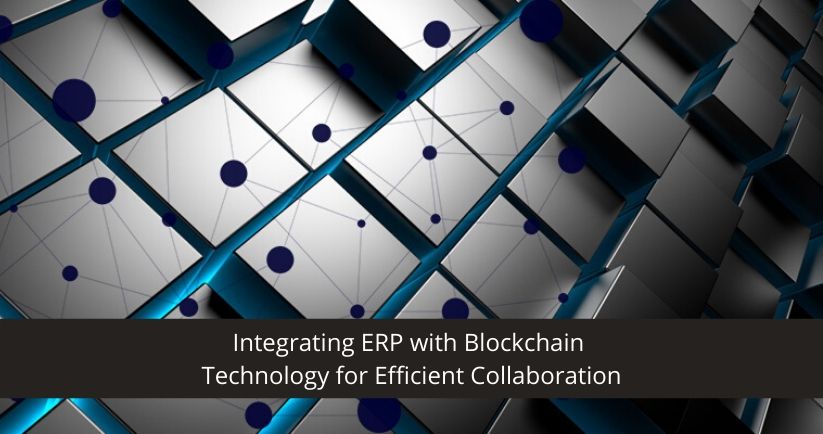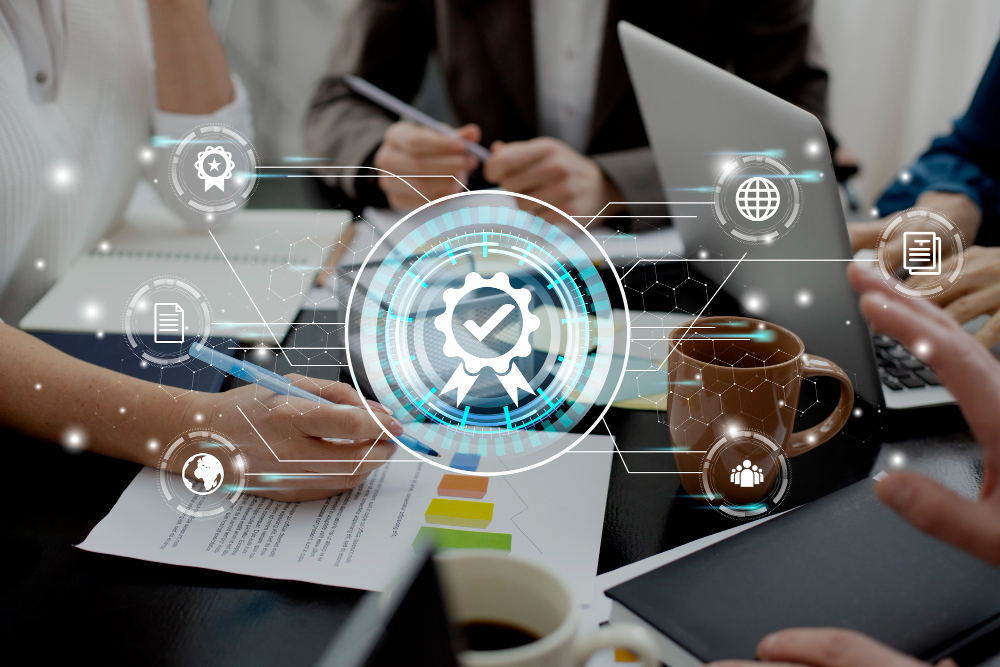Blockchain and ERP Integration
Blockchain or Distributed Ledger Technology (DLT) has the capability to take industries by a storm. Though this technology is now out of the typical experimental phase and has grabbed the attention of several financial organisations, as it offers numerous benefits. Blockchain allows digital data to be distributed, but it cannot be copied. Initially, Bitcoin was created as a digital currency, but now many organisations are trying to explore other capabilities of Bitcoin and Blockchain.
Evolution of Blockchain
Bitcoin has gradually evolved as an excellent technology serving as the backbone for several large corporates. This is the reason why tech pundits suggest integrating Blockchain technology with enterprise resource planning (ERP) systems. Such an integration would enable businesses to streamline their investments whilst optimizing the cost. As Blockchain can be used to keep a track of transactions and transfer of value between bitcoin wallets, it can be used for ERP as well. An ERP software:
- Centralizes all your business data.
- Provides a single-point-of-contact.
- Integrates other business process applications as well.
- Shares trusted data across various departments within your organisation.
The same has to be targeted with Blockchain-ERP integration, but in a wide sense like:
- Centralizing business processes and workflows across multiple organisations.
- Integrating and optimizing significant operations of various organisations.
- Sharing trusted version of data across multiple organisations.
Integration enables data interoperability for banks and financial institutions. The benefits can be forwarded to corporate clients in a faster and efficient way to mitigate risk-adverse conditions. Blockchain-ERP integration includes services such as corporate banking services like payments, trade financing and contract management.
Integration of Blockchain with ERP:
ERP software manages and streamlines all major business processes. It is a kind of database hub, which allows an organisation to carry out back-office functions smoothly and in real time with the help of integrated applications. As ERP system uses database management system, likewise Blockchain also uses real-time scalable database that facilitates proof of concepts, platforms and applications. For an example, if a marketing team is using one software to generate invoices and the accounting team needs the same invoices to manage sales, it becomes mandatory to share invoice information between both the teams. However, this often results in minus point for businesses. The reason can be lack of trust between two teams or lack of compatibility.
Don’t miss: 10 Manufacturing ERP Modules You should look for in an ERP System
Since every organisation follows a distinct set of business standards, processes, and formats, it will be a lot easier for everyone to embrace the Blockchain technology. Furthermore, Blockchain does not stand on ROI ground, but it does stand on strategic grounds like resisting cyberattacks and other malware threats. ERP is an essential part of an organisation, as it handles finances, invoices, purchase orders and payments. Blockchain integration with ERP systems will enable true data interoperability for various commercial and banking services like online payments, trade financing and contract management facilities.
Enterprise Resource Planning (ERP) is a widely used terminology to collaborate multiple departments onto one platform, manage finance and accounting, payrolls and statutory compliances for companies. Block chain technology known as distributed ledger allows sharing of information between multiple computers without having a centralized platform to maintain the highest security.
So what does it look like when both are integrated? It will result into mapping, linking and accessing the transaction between two parties or manage the supply chain process without having to fear the breaching of information.
The operation of blockchain lies within the bitcoin network, which is decentralized. Therefore, whenever a new transaction occurs, it is important to validate it in order to avoid the risk of excessive spending. To explain the block chain technology, let’s take an example of food industry. The supply chain of the food industry is very complex and it is difficult to track food-borne illness from farmers to grocers. Blockchain technology can help here. It can help in identifying the contaminated food throughout the supply chain resulting into improved efficiency and transparency. For another example, let’s talk about the finance sector. Regular SMS and emails are circulated among users warning them not to share their bank details with anyone and the major reason behind this is to avoid frauds. Due to banks using centralized systems, they are more prone to cyberattacks. It is highly risky because if the hacker cracks the code to access one system, he gains access to all the other. The distributed ledger is made up of blocks containing a timestamp that holds individual transaction batches with a link to a previous block. This technology, therefore can contribute efficiently in putting down the current cybercrimes.
ERP systems are used by multiple industries – banks, healthcare, food and beverage, e-commerce, retail, etc. It helps companies manage their accounts, finances, supply chain, human resources and such other departments through a unified platform. When multiple departments require to access common data, verbal communication can result in the partial loss of information resulting into productivity loss and no or less profit booking. With an ERP system, multiple departments can be collaborated together to generate data accessible by different teams in real-time from anywhere. But, in this case, how do you protect the information that is not public and requires to be kept confidential, yet shared between some parties? This is when the ERP integration with blockchain technology works wonders where the data can be shared between two parties (here computers) to be accessed by trustworthy individuals but this data cannot get copied.
Don’t Miss: ERP and Cybersecurity
Companies using ERP systems can be benefited with blockchain integration to manage their finances, keep inventories in check, track supply chain and perform high-end transaction without having to worry about security or cyberattacks. In order to create more transparent, secure and seamless experience, 90% banks from North America and Europe are investing in blockchain technology.
Sage Software Solutions (P) Ltd. has been designing and implementing ERP systems for over three decades to businesses across India. You can also drop a mail at sales@sagesoftware.co.in for a free demo and consultation.
Disclaimer: All the information, views and opinions expressed in this blog are those of the authors and their respective web sources and in no way reflect the principles, views or objectives of Sage Software Solutions (P) Ltd.




